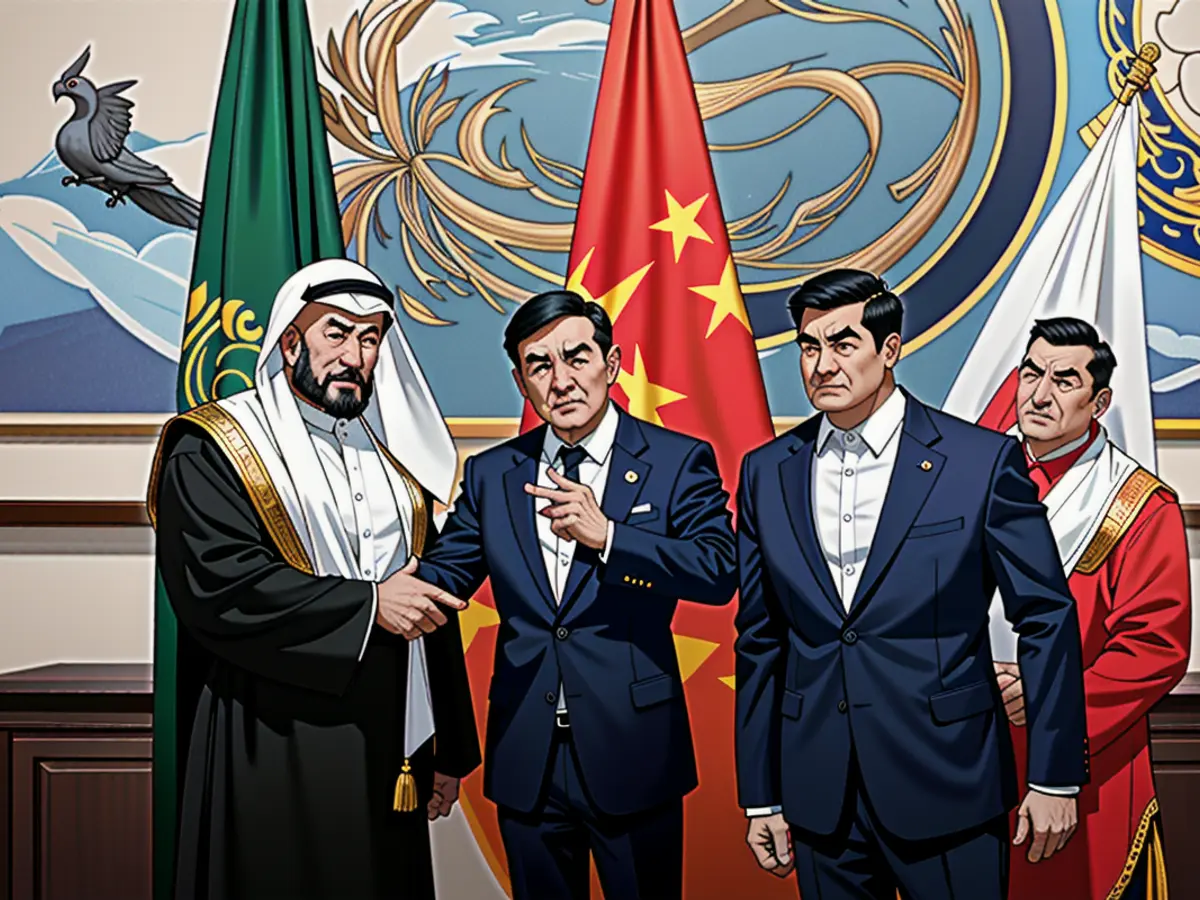International Diplomacy: Discussions Among China, Russia, and Iran in Beijing Amidst Trump's Proposed Nuclear Agreement With Iran
Let's talk about the international scene unfolding today as China hosts diplomats from Iran and Russia for discussions about Tehran's nuclear program. This gathering on Friday in Beijing highlights China's ambition to be a power player on an issue of global concern. Chinese Executive Vice Foreign Minister Ma Zhaoxu will lead the talks, with Russian Deputy Foreign Minister Sergei Ryabkov and Iranian Deputy Foreign Minister Kazem Gharibabadi in attendance.
These meetings come as nations scramble to find diplomatic solutions or reinstitute sanctions due to a looming deadline from the 2015 Iran nuclear deal. President Donald Trump, having pulled the U.S. out of that agreement, is pushing for a new deal, while European powers are in talks with Tehran to resolve the issue.
The United Nations nuclear watchdog warns that Iran is swiftly boosting its stock of near-bomb-grade uranium, which adds pressure to the negotiations. Iran maintains that its nuclear energy program is solely peaceful. China is eager to position itself as an alternative global leader to the U.S., with such discussions providing an excellent opportunity.
Tong Zhao, a senior fellow at the Carnegie Endowment for International Peace, notes that China aims to safeguard its interests, expand its regional influence, and reinforce its image as a responsible global power through these discussions. By bringing Russia and Iran together, China may also highlight the significance of non-Western approaches to resolving global challenges.
Competing to find a solution
China has long been an advocate for the 2015 nuclear deal, frequently criticizing the U.S. withdrawal and opposing American sanctions on Iran. A deadline for a "snapback" of international sanctions on Iran, set by the JCPOA, looms in October. China's UN Ambassador Fu Cong has expressed a desire to reach a new deal by the deadline to maintain the JCPOA.
Trump recently expressed a willingness to negotiate with Iran, stating, "there are two ways Iran can be handled: militarily, or you make a deal. I would prefer to make a deal, because I'm not looking to hurt Iran." However, Iran has indicated little interest in dialogue with Trump.
It is unclear what form a potential new agreement would take or how it would be negotiated. A failure to reach an agreement could lead to an escalation of the ongoing conflict in the Middle East or a shift in Iran's stance on nuclear weapons, observers warn.
China's strategic moves
In this complex political dance, China seeks to align with Russia and Iran while maintaining relationships with other key players in the region, such as Saudi Arabia. A recent naval drill with Russia, Iran, and China further demonstrates this trio's unity. For Iran, the meeting in China offers an opportunity to show its alliance with Moscow and Beijing and reaffirm its pursuit of engagement.
A show of the alliance among these countries could potentially thwart efforts by the Trump administration to undermine the close ties between China, Russia, and Iran. Russia has also expressed willingness to participate in nuclear talks between the U.S. and Iran.
Yet, despite its ambitions, China faces challenges in its quest to become a major player in Middle Eastern negotiations. China's inexperience in the region and limited influence over Iran's policies mean it may be difficult for the nation to lead the negotiations. However, all parties appear content to participate in the spectacle of China's emergence as a new player on the international stage.
- China, being attentive to the upcoming deadline in October for a "snapback" of international sanctions on Iran, under the JCPOA, aims to negotiate a new deal to preserve the existing agreement.
- To expand its international influence and reaffirm its position as a responsible global player, China is including Iran and Russia in discussions about Tehran's nuclear program, as they gather in Beijing.
- Despite potential challenges due to China's inexperience in the region and limited influence over Iran's policies, these discussions provide China with an opportunity to assert itself as a major player in Middle Eastern negotiations.








